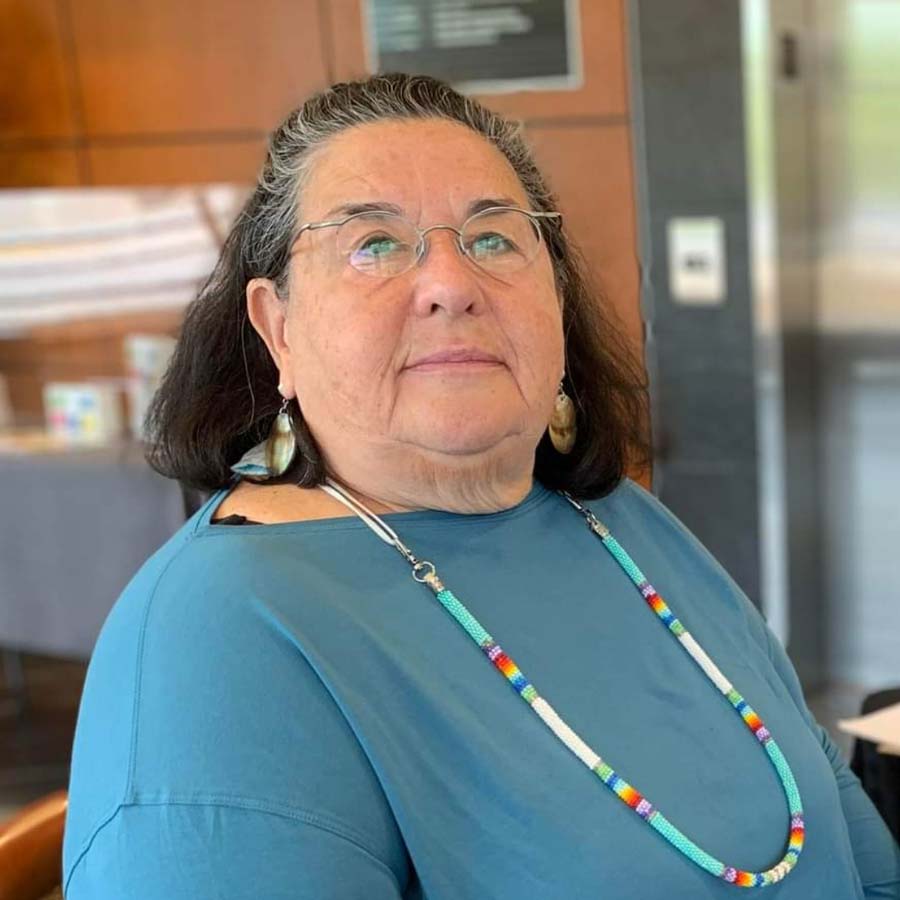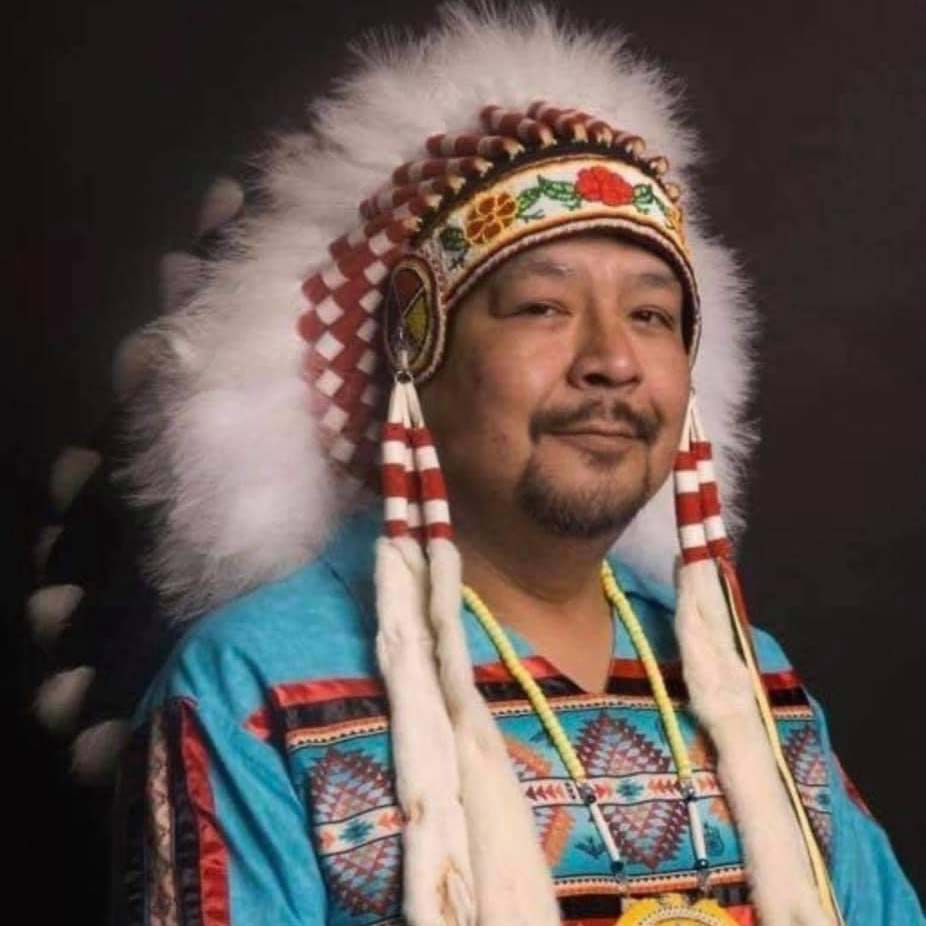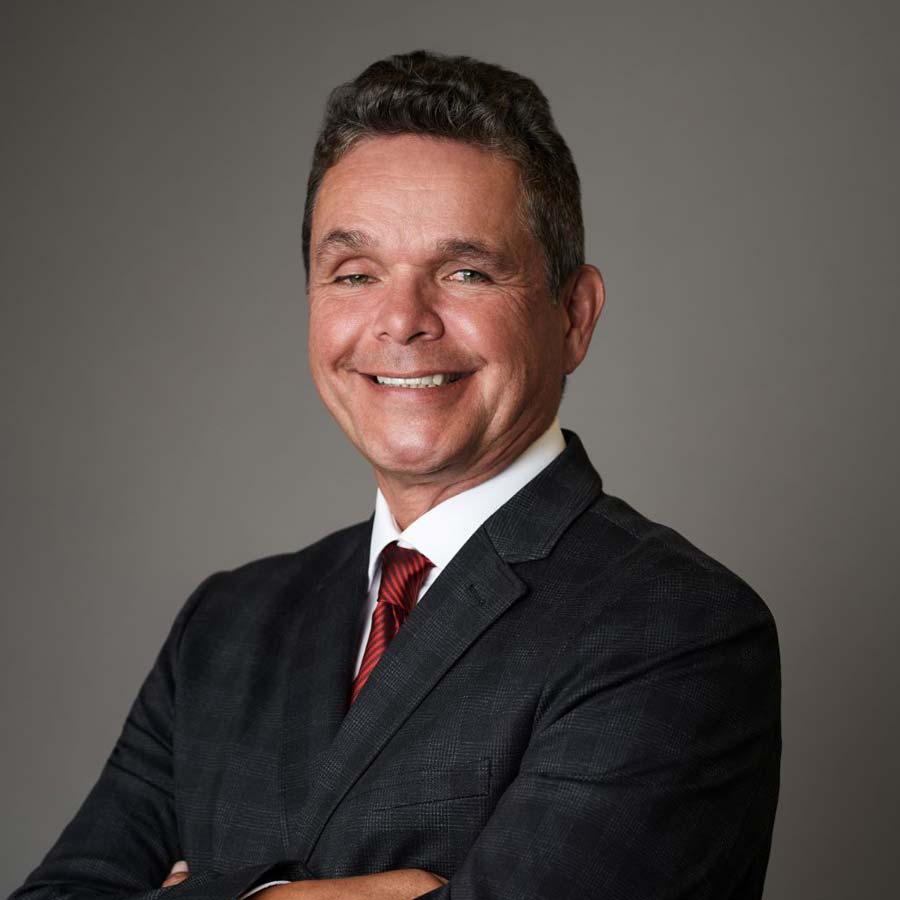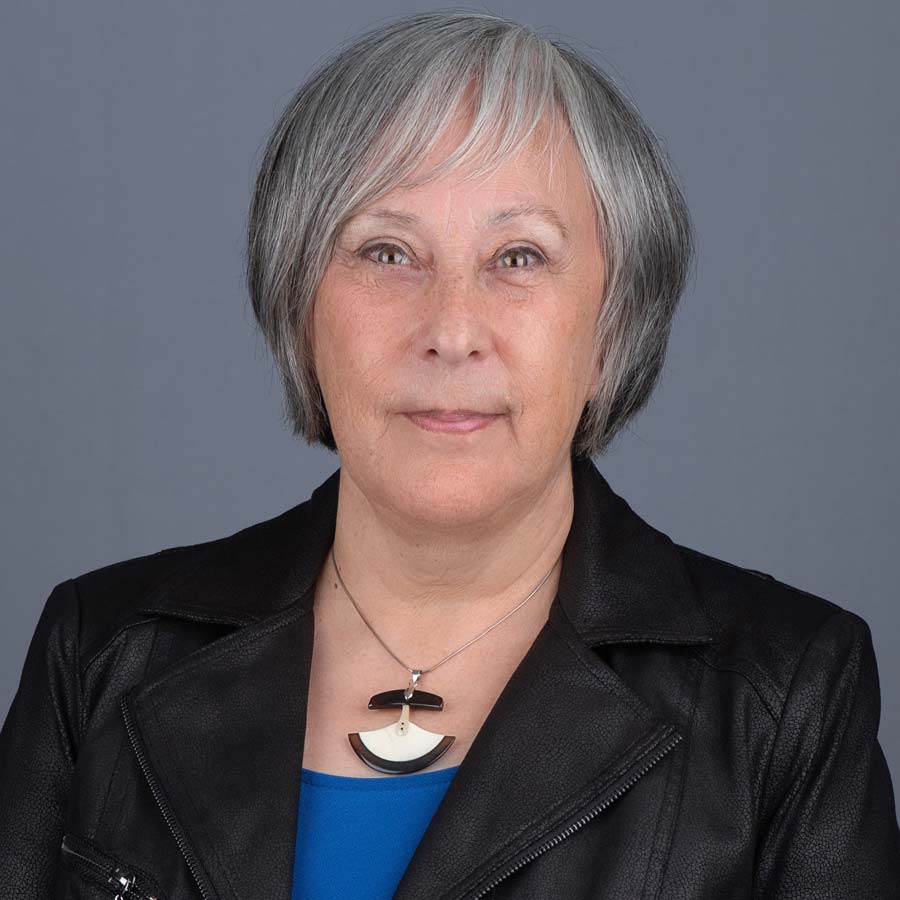The Advisory Council
Louise Tekahawáhkwen Mayo
Tekahawáhkwen Louise Mayo is a member of the Mohawk Territory of Kahnawake, QC, where she was born and raised. The eldest of seven children and the child of Residential School Survivors, she attended the Kahnawà:ke Federal Indian Day school for six years.
Ms. Mayo found her path in giving service and advocating for individual rights, bringing with her extensive knowledge and awareness of the history and the impact of intergenerational trauma and the effects of Indian Residential Schools.
After earning her college degree in Special Care Counselling, Ms. Mayo served as the Executive Director, National Native Advisory Council on Alcohol and Drug Abuse. For over four decades, she has been involved in all levels of government, designing community-based programming and negotiating funding for non-profit community organizations while establishing various local, regional, and federal Indigenous initiatives, including National Addictions Awareness Week, Caravan for Youth, and the Montreal Homelessness Street Patrol, to name a few. Ms. Mayo has extensive experience in program development and implementation.
Currently, Ms. Mayo serves as the Indian Day School Settlement Coordinator for her home community, and is the mother of one daughter.


Kevin T. Hart
Kevin T. Hart is from the Nisichawayasihk Cree Nation, a signatory to Treaty 5, located in northern Manitoba. Kevin has served as the Manitoba Regional Chief for the Assembly of First Nations (AFN) of Canada from 2015-2021.
He presently resides in his wife’s community, Sagkeeng First Nation, a signatory to Treaty 1, and is a proud father and grandfather. Kevin comes from a strong traditional family with a humble background believing in the protocols, ceremonies, songs and perseverance of strong family values.
Kevin has been active in politics and as a volunteer for the past 25 years. He is sought after as a speaker, and he has been involved with the United Nations, bringing the Indigenous issues to the international level.
He is passionate about the First Nation community and people, striving to ensure the issues and concerns are in the spotlight of the Government of the day. His priority is to protect Aboriginal Treaty and Inherent Rights, Inclusion, and Advancement while ensuring a secure future for our women and children.
Bernd Christmas
A celebrated leader in Indigenous communities, Bernd Christmas is the owner of the Bernd Christmas Law Group, a firm specializing in Indigenous economic reconciliation. Until recently, he was the Chief Executive Officer and General Counsel of Nch’kay Development Corporation, the business arm of the Squamish Nation.
The first Mi’kmaw to become a lawyer in Canada, Mr. Christmas is the former CEO of the Membertou Band of Nova Scotia and Membertou Corporate Division, and has served as a negotiator for several First Nations.
Mr. Christmas brings a deep understanding of Aboriginal perspectives as well as a decades of experience on national and international boards and commissions. In 2003, he was appointed by Prime Minister Chrétien to the External Advisory Committee on Smart
Regulation, and was one of three Canadian commissioners to the International
Commission for the Conservation of Tuna from 2000 to 2002.
He is a former member of several high-profile boards, including the National Aboriginal
Economic Development Board, the Canadian Broadcasting Corporation Board, IG Wealth Management, the executive committee organizing the Governor General’s Conference on Leadership and Diversity, and the Indigenous charity, Outside Looking In.


Violet Ford
Before joining the University of Prince Edward Island Faculty of Indigenous Knowledge Education and Applied Studies (IKERAS), Violet Ford was legal counsel with the Inuit Women’s Association of Canada- Pauktuutit. Until recently she was also the Associate Vice-President (Indigenous Research) [AVPIR] at Memorial University of Newfoundland, where she worked to increase the impact and integrity of research relating to Indigenous communities.
Originally, from Makkovik, Nunatsiavut, Ms. Ford is the first Indigenous woman to become a lawyer in her home province of Newfoundland and Labrador, as well as Canada’s first female lawyer of Inuit ancestry.
A former law professor at Lakehead University, she also served as senior legal counsel with the Missing and Murdered Indigenous Women and Girls National Inquiry, as well as senior advisor on Indigenous rights with the Congress of Aboriginal Peoples, and director of policy with the Native Women’s Association of Canada. She previously served as vice-president at the Inuit Circumpolar Council for two terms, where she was an advisor and negotiator on international environmental treaties and the rights of Inuit in the promotion and protection of Inuit traditional knowledge.